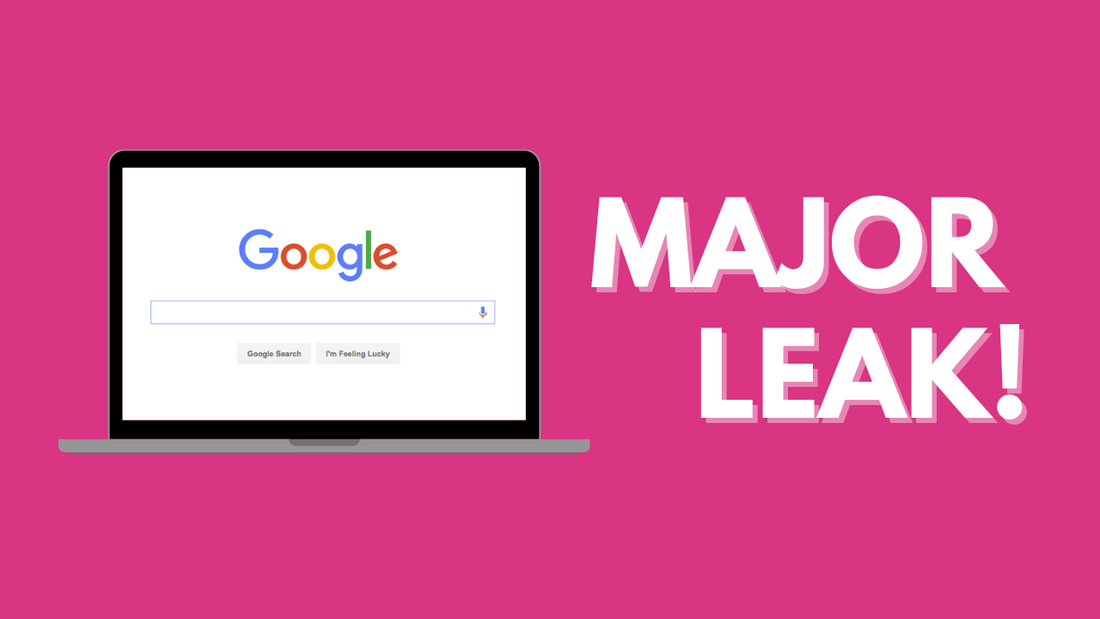
Major Google Leak! Your SEO Homework Just Changed
Share
You can also listen on:
Apple Podcasts / Spotify
In this episode, we delved into a major leak from Google that's set to revolutionise the world of SEO. This leak uncovered critical changes that will alter the way SEO professionals approach their strategies and will help you stay ahead in the ever-evolving digital landscape.
Google Leaked a Document About Ranking Factors
It was revealed through a leaked document that Google Chrome monitors every user's web activity, even if Google Analytics is not installed. This extensive tracking helps Google understand user behavior, influencing search rankings. Key points include Google's ability to rank websites higher based on user search patterns, such as refining their search queries. The discussion highlights the importance of having multiple pages for similar topics to capture diverse search interests and emphasizes that naming your brand after your main keyword can incur penalties.
Tips for better SEO on your website
Using keywords in your domain name, such as "shoe factory," no longer gives SEO advantages and may incur penalties. Instead, focus on creating a unique brand name for your domain. During the COVID-19 pandemic, Google implemented a whitelist for credible information on COVID-related searches, which also applies to travel and politics. Additionally, Google's "focus and radius" strategy emphasises sticking to core topics on your site. For instance, if your site is about toilets, focus on toilet-related content rather than broader bathroom topics. Finally, ensure high-quality images on your site to improve rankings.
Rules for Ranking in Google's Search Engine
Using low-resolution or unclear images on your website can negatively impact your SEO. For example, a vague image of someone walking a dog is less effective than a clear image focusing on a dog lead if you're selling dog leads. The quality and relevance of the image to your content are crucial. Additionally, Google stores all versions of your website pages but only considers the last 20 for ranking. Regularly update pages to improve SEO rankings. Quality over quantity in content, continuous link-building, and focusing on core topics are essential for better SEO.
The most important things in your site navigation
Navigation structure is crucial for SEO. Properly organising your navigation helps Google understand your site's hierarchy and the importance of each section. For instance, clear categories like "Shop," "Blog," "About," and "Contact" in a well-structured menu can improve rankings. On mobile, this translates to an effective hamburger menu layout. Align your navigation with key topics and ensure links lead to relevant pages, boosting SEO effectiveness. This structure aids in user experience, reducing bounce rates, and enhancing engagement, all of which contribute to better search engine rankings.
Spammed Emotion on Google Search Console
The leaked document revealed that Google does use an "authority score," which evaluates the number and quality of links pointing to your site. Additionally, Google dislikes spammy anchor text and prefers concise, relevant descriptions for images. Google also favors larger clickable links for better usability. Although new domains may initially rank lower, they can achieve good rankings over time if they avoid spammy practices. Lastly, having video on more than 50% of your pages could classify your site as a "video site."
Internal Linkage: Do We Need It?
Internal linking, or how pages link to each other within your website, is not directly a ranking factor in Google's algorithm. However, effective internal linking can enhance user navigation, reduce bounce rates, and increase engagement, all of which indirectly benefit SEO. By ensuring users can easily find and access different parts of your site, you create a better user experience that Google tracks and rewards. Thus, while internal linking itself isn't a direct ranking factor, its impact on user behavior and site usability makes it crucial for SEO.
One more tip for SEO
Check out Microsoft Clarity, a free tool similar to Hotjar, for monitoring user interactions on your website. It provides video recordings of user sessions, helping identify issues like "rage clicks" where users repeatedly try to click on non-clickable elements. Installing Clarity typically doesn't impact page speed. This tool can offer valuable insights into user behavior and help improve site usability. Finally, if your SEO isn’t performing well, consider consulting with experts to optimize your strategy.
Check out the full Google leak video here
This episode was brought to you by Nick Trueman, Director of PPC & SEO Agency Spec Digital.
